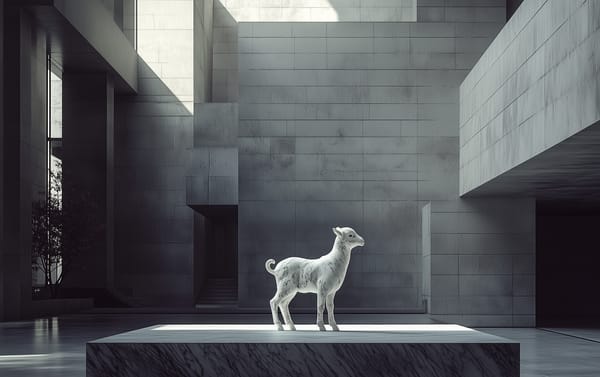Finding Where You Fit (Without Shrinking Yourself to Fit In)
Here are some tips for choosing the right communities without self-erasing, over-adapting, or falling into the wrong crowd out of loneliness.

Learn how to recognize genuine belonging, avoid performative fitting in, and find multiple spaces that support who you are.
Some groups make you better.
Some groups make you smaller.
And sometimes, the line between the two isn’t obvious—until you’ve been sitting at the wrong table for too long, wondering why your shoulders are tense and your voice feels stuck in your throat.
Fitting in can be a trap. Especially if you’re adjusting yourself so much just to stay in the room. The silence gets louder. The effort gets heavier. You start performing a version of you that never quite lands.
Here’s the shift:
Instead of trying to fit in, try belonging.
And belonging starts with a few clear checks:
1. Become before you belong
You don’t find your people by moulding.
You find them by revealing.
Show up with what you actually think, how you actually speak, what genuinely lights you up. Let people opt in or out. That’s the point. Your job isn’t to shrink, translate, or audition. Just share.
2. Check the fit—like you would a therapist
- Do they actually see you, or just project onto you?
- Do you feel lighter or heavier after time spent with them?
- Do you leave with more clarity—or more doubt?
Not every good group is your group.
Not every safe room is the right room.
This isn’t about perfection. It’s about resonance. Like a good therapist: they don’t have to be your twin, but they should make space for your real self—and challenge you in ways that help, not harm.
3. Don’t lead with desperation
If you’re starving for connection, you’ll take whatever’s handed to you.
That’s when the energy vampires find you. They can smell the ache.
Desperation dulls your radar. You start ignoring red flags just to stay close to the warmth.
Better to be alone and clear than surrounded and drained.
Find stillness. Rebuild yourself. Then look—don’t hunt.
4. You’re allowed to have multiple groups
You are not one-dimensional.
It would be foolish to expect one tribe to hold all your layers.
You can belong to a deep personal circle and a surface-level ceramics club. One for your complexity, one just for your hands. Not everything needs to cater to your entire identity. Some spaces are functional. Some are sacred. Some are seasonal.
Let that be okay.
5. Change rooms when needed
Some spaces are just wrong—or become wrong. Doesn’t mean you’re broken. Doesn’t mean they are either.
But if a room can’t hold you as you grow—leave.
You don’t need a dramatic exit. Just clarity, movement, and self-respect.
Belonging isn’t about being chosen.
It’s about recognizing when you’re home.
And sometimes? Home is a few places at once.












